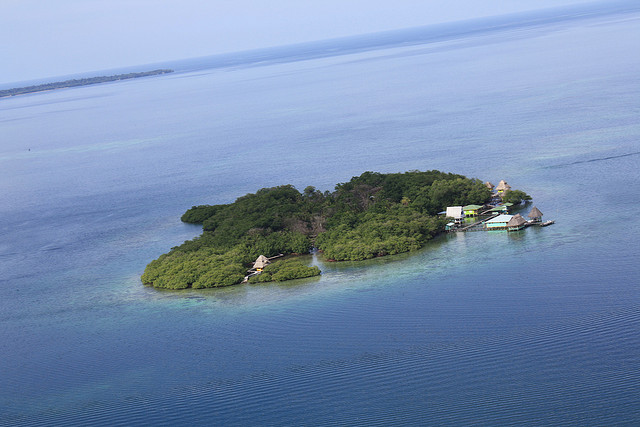Hospital Point is a close and small place with a great diversity of attractions part of Solarte's island. Tourists can scuba dive or snorkel in the reef nearby, or swim and rest in the protected small beach, know about the history of the islands with the owner of the point or walk in the forest with a local guide, looking for the tiny colorful and poisonous frogs and the tombs from the beginning of the century.
Christopher Columbus sailed in front of the island during his fourth voyage in 1502.As english-speaking bucaneers, pirates and colonists, came during the next three centuries the island became known as Nancy's Cay. In United Fruit Company medical files from 1899 to 1920, "Nances Cay", is used. The Spanish name of the island is Solarte.
Towards the end of the 19th century, the banana business prospered and people from different countries came to the islands to take advantage of this new industry.
Several banana companies operated in Bocas del Toro during the last years of the 19th century. In 1899 the giant United Fruit Company replaced all other banana interests in the region, establishing their main office in the city of Bocas del Toro. To ensure a healthy and functional work force, the company built a Medical Center on the west end of Solarte, a place that came to be known as Hospital Point.
The history of the hospital is very rich. Plants lovers find, in the western side or Hospital Point, where the main house is, a real botanic garden with species from all over the world, with emphasis in a diversity of banana plants.
Today, visitors can appreciate the remains of concrete columns and sidewalks of the complex. In the nearby forest are several tombs, some identified and others not. In the sea, snorkellers and divers can appreciate the history of Hospital Point in the form of rails, ceramic and bottles















